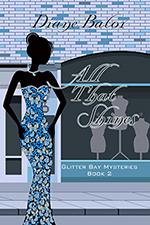Please click this link for author, book and purchase information
Like millions of people in North America and Britain, I watched the recent Oprah Winfrey interview with Meghan Markle and Prince Harry. When the couple married almost three years ago, my husband and I happened to be in the UK on vacation. We visited the church at Windsor Castle, where the wedding would take place and watched the preparations underway. On May 19, 2018, the day of the event, we took a train from the Lake District to Edinburgh. At the decorated train station, a woman set up a festive table with afternoon tea for sale.
Meghan and Harry’s honeymoon with the press and public deteriorated quickly after that, as did their relationships with people in the royal family. A year ago they gave up their duties as senior royals and moved to Canada, a Commonwealth nation where Meghan had lived and worked as an actress. When the UK and Canada refused to pay for their long-term security, they settled in California with plans to pursue non-regal ventures. In their interview with Oprah, they said that unfair and hurtful treatment by members of the royal family, the palace establishment and the British media forced them to take these steps.
Everyone I know, including me, has watched the Netflix series The Crown, which chronicles the life of Queen Elizabeth II from girlhood to recent times. A theme I take from the series is that the personal lives of royal family members come second to protecting and preserving the institution of The Crown. In the Oprah interview, Harry said that all of his relatives are trapped in their royal roles. The Netflix show suggested the Queen might have been happier living a simple life in the countryside with her horses and dogs. But then she wouldn’t have fame, fortune and a place in history. Many would choose the trap.
The media loves drama. It sells newspapers and gets people to watch shows like the “bombshell” and “explosive” Oprah interview. The UK tabloids exploited and maybe created the Meghan vs Kate conflict. This narrative serves The Crown if Kate generally comes across better, since she’s a future queen. Harry told Oprah that the royal family needs positive coverage by the press. The monarchy isn’t secure forever and the country has many anti-royalists. While the Queen is beloved, her successor Prince Charles isn’t. But Will and Kate look on track to replacing the Queen in people’s hearts. They also have three children ahead of Harry in the line of succession. Harry's drop to the # 6 spot makes him less important to The Crown. That's why their son wasn't made a prince and perhaps why the palace made little effort to protect Meghan from media criticism and lies, as she said in the Oprah interview.
Both Harry and Meghan made a point of telling Oprah they still get along well with his grandmother, Queen Elizabeth. Harry followed up the interview by making it clear that the Queen and Prince Philip weren’t the unnamed royals who made racist remarks that were arguably the interview’s biggest bombshell revelation. This shows that the young couple's intentions haven't strayed completely away from their prime roles as members of the royal family—to protect and preserve the person who embodies The Crown.






















































.jpg)
